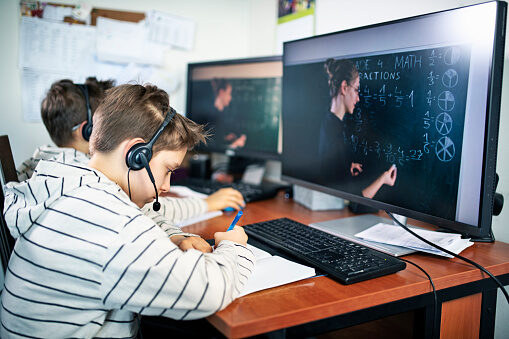The global COVID-19 pandemic has affected all of us in some way. Whether we have lost loved ones; have had to work from home or have been so unfortunate as to suffer mental health depletion, COVID-19 has been unkind to each and every one of us. From my own perspective as a secondary school teacher in the United Kingdom, it has grown obvious that perhaps, more than anyone, those most impacted by COVID-19 are, in fact, those belonging to the younger generations. Let us explore why and how the COVID pandemic has hit schools so hard.
Pandemic Effects on Education: A Teacher’s Perspective
Unfortunate For Students
For many students, the COVID-19 pandemic has taken away a big chunk of their schooling experience. For example, in the UK, we do not have the same “grade” system as in the United States (and, indeed, many other countries); there is no middle school, you attend primary school until the age of 11, before jumping over to high school in your first September as an 11 year old – the first year of high school dubbed “Year 7”. Then, you are in high school until your final summer as a 16 year old – we call this “Year 11”. Today’s Year 9 pupils – the middle group in high school, seen as the year group where pupils begin to mature in young adults – have now spent the vast majority of their high schooling experience under pandemic rules; including social distancing, the wearing of masks in class, dreaded “one way systems” and and an excessive amount of hand-sanitizer.
It is depressing, certainly, that pupils have lost so much time. With constant lockdowns having occurred throughout their schoolship, they have also mostly suffered from home-schooling – with parents trying their best to balance teaching their own children with work and life. It is no surprise, then, that more pupils have fallen behind their predicted averages than ever before. Most tragically, language development has fallen behind – impacting children from working-class and impoverished backgrounds the most. The consequences of the COVID-19 pandemic have evidently brought negative impact upon the schooling system and the educational development of children. Indeed, it is even noticeable within classrooms. However, perhaps more tragically, is the impact on children’s mental health.
Mental Health Consequences
Though we are out of lockdown now and, hopefully, need not return, children’s mental health has not improved overall. Going into the first UK lockdown in Spring last year, high school children displayed a vast mix of emotions. Many were worried: why wouldn’t they be? They all saw the effect a long-term school closure would have on their development, their grades and, indeed, their lives. Some were confused – unsure as to what to make of COVID, the lockdown and everything that was to come. Some were even excited; grateful to the government for giving them time off school. The nationwide return to school that September, however, painted an entirely different picture.
The general mood was as expected: after having been off school for so long, with many having not seen their friends in six months, they were excited to be back (overall). It quickly became apparent that many pupils had picked up heavy amounts of anxiety; not wanting fellow pupils to come too close to them; being worried about the health of their elders (individual conservation with pupils revealed many had sadly lost loved ones) and some pupils never returned at all – with some refusing to come in and others being forced to stay home by (understandably) worried and concerned parents/guardians. These mixes of different emotions also paint a problem for teachers; there are now far more pupils displaying symptoms of depleted mental health that it has become a task in itself trying to meet the individual needs of each pupil. If we cannot meet these individual needs, we are failing at our job.
A Potential Return to Normal
Through the hard work of educators and children alike – not to mention the majority of the population for choosing to receive a vaccine, as well as the healthcare workers who gave them – things are improving within schools and, slowly, returning to something resembling normal. Relaxing COVID measures within schools is making a difference and whereas anxiety remains high among the pupils, they are now far more capable (and accustomed) of enjoying school without much of the previous worries they had before. The hope is that, over time – and as we emerge from the absolute worst of the pandemic – they will be able to return to the schooling experience they deserve; where they can make the most of what should be some of the happiest memories of their lives. It is what they deserve for the sacrifices they have made so young.
More From LWOS Life
Make sure to stay tuned to LWOS Life for more on this and other stories from around the world of entertainment, culture and more, as they develop. You can always count on LWOS Life to be on top of the major news in the world of entertainment; whilst also providing you with editorials on everything from beer to movie reviews.

